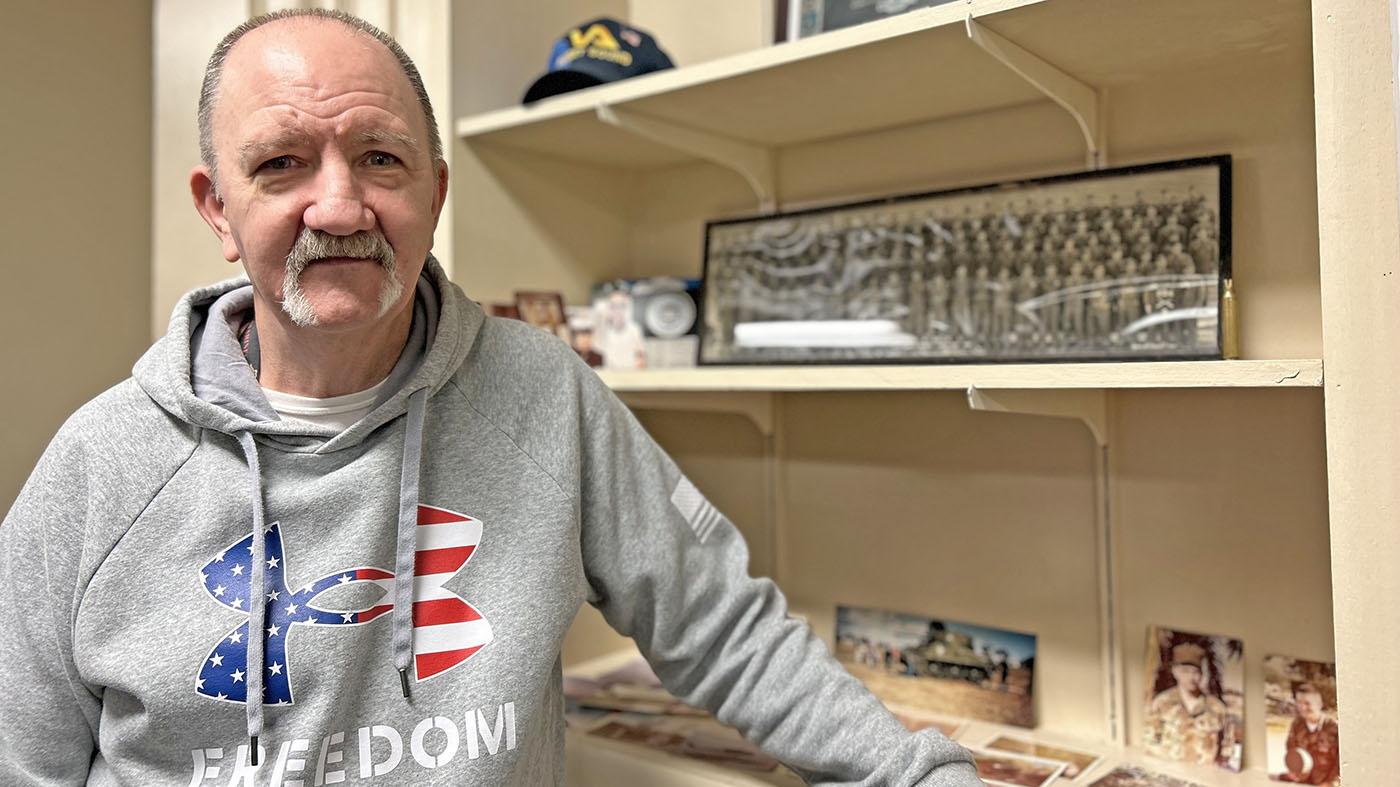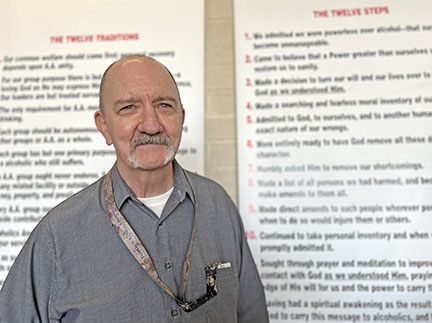After a series of unfortunate events, Marine Corps Veteran Daniel Mock found himself in a position he never thought he would be in: homeless, penniless and alone. His is a story of redemption.
“My wife of 23 years left me. I was fired from my job of 16 years. My brand-new house in Colorado was taken from me. My car was lost… all because of my drug addiction,” Mock shared.
Mock ruined every relationship in his life—including those with his parents, his girlfriend, close friends and loved ones. Realizing there was nowhere else to go, he visited his local Colorado VA in hopes of finding a way out. A VA social worker recommended he enroll in VA Domiciliary Care (DOM) at West Texas VA.
The DOM serves as an active clinical rehabilitation and treatment program. That’s when Mock decided to pack his bags and set out on what would become his first step toward healing: “Through intense therapy, my mentality changed from angry victim to someone who appreciated the little things. It was then I truly recognized this was my second chance at life,” he said.
Used time to focus on sobriety
When it came time to think about life post-program, Mock learned about VA Supportive Housing. This collaborative program pairs Housing Choice Voucher (HUD) rental assistance with VA case management. HUD-VASH is designed to help homeless Veterans like Mock obtain permanent housing and other necessities. He applied and was granted a voucher to cover 12 months of rent. He used this time to improve his credit score, pay off debts and begin a career, but, more importantly, to focus on his sobriety.
Through another VA program, Compensated Work Therapy (CWT), he received support through the next phase of his journey to recovery. “I landed a job as a kitchen aide at the George H. O’Brien VA, thanks to the CWT program. That relieved a lot of stress for me because I no longer had to worry about how I was going to pay for things I needed.”
“All I want to do is help other Veterans.”
Having graduated from the DOM rehabilitation program, Mock was not shy about returning to campus to seek additional support. VA never shut the door and continued to guide him along his wellness path. “There were so many resources offered by VA, even after I left. VA can truly change a person’s life for the better. It did for me.”
Mock said that he desired to be a productive member of society with one goal in mind: “I was a taker for most of my life. But for the first time ever, I am finally able to give back and contribute. And that’s all I want to do, help other Veterans.”
Mock currently works as a medical records technician for West Texas VA. He has been a federal employee for more than eight years and continues to celebrate his sobriety.
If you are interested in learning more about VA Domiciliary or any other Veteran resource, please reach out to the VA National Call Center at 1-877-424-3838.
Topics in this story
More Stories
Bob Jesse Award celebrates the achievements of a VA employee and a team or department that exemplifies innovative practices within VA.
The Medical Foster Home program offers Veterans an alternative to nursing homes.
Watch the Under Secretary for Health and a panel of experts discuss VA Health Connect tele-emergency care.








I have known Dan since junior high. I am one of his friends that he didn’t lose. Dan is a good person and very talented. The VA provided support that helped him get back on track. Keep going Dan, and continue to help others along the way.
I was at the DOM will Dan. He did do a major change in his life.
He found peace.
Congratulations Dan! Semper Fi!
Being a Marine Corps veteran this story Hits home.
The va has helped me also.
I’m a camp lejuene vet with 3 types of cancer.
The care I have received from the Atlanta VA hospital has given me hope for the future.
Does the VA place placards with this information in shelter areas? Most homeless veterans do not have computers.
This information should be available everywhere.